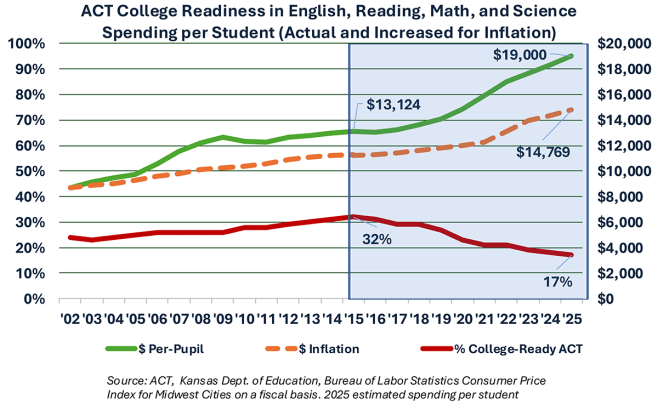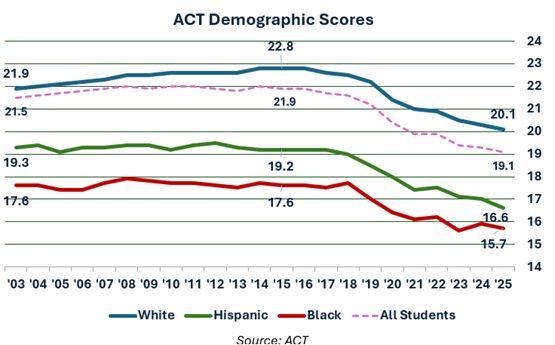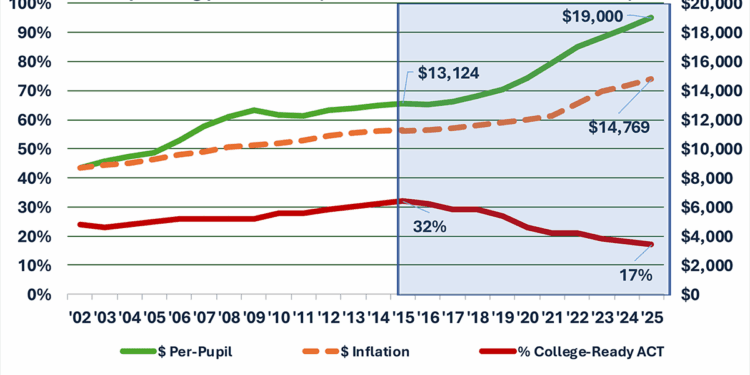Kansas Education Commissioner Randy Watson took office in July of 2015 and immediately began de-emphasizing academic improvement in favor of social-emotional learning (SEL). He convinced the State Board of Education to adopt his gimmicky “Kansans Can” program, featuring a tagline of “Kansas leads the world in the success of each student.”
At the time of Watson’s appointment, 32% of Kansas graduates were considered college-ready in English, Reading, Math, and Science based on ACT scores. The ACT results released yesterday show that only 17% are college-ready in those four subjects. That may qualify Watson for leading the world in the decline of student success.

ACT’s definition of college-readiness isn’t a high bar: it’s having a 75% chance or getting a “C” on an entry-level course. That means many graduates who went to trade school, community college, or who entered the workforce were also not academically prepared for life after high school.
The national average for college-readiness in those four core subjects is 20%.
ACT composite score hits all-time low
Like college-readiness, the ACT composite score also hit an all-time low, dropping to 19.1 and below the national average of 19.4. The average score in Missouri is 19.8 and it’s 19.2 in Nebraska.
Demographic scores also fell to 20.1 for White students, 16.6 for Hispanic students, and 15.7 for Black students. It’s noteworthy that scores for Black and Hispanic students declined more than White students during Watson’s tenure.
State audits show school districts are not spending more than $500 million annually on “above and beyond” services for students who are academically at-risk as required by state law. Watson and the State Board of Education should, by their own accreditation requirements, strip accreditation from districts not following the law, but they don’t. The excuse given by General Counsel Scott Gordon is that KSDE doesn’t consider that law to apply to school improvement.

The sad but very predictable ACT results, ironically, come one day after the Kansas Department of Education released district-level state assessment results purporting to show huge gains in reading and math proficiency for high school students based on new proficiency standards. Watson insists that rigor wasn’t reduced, but today’s ACT results are another piece of evidence to the contrary.
Reducing state proficiency standards is symbolic of Watson’s legacy: constantly trying to cover up declining outcomes rather than acknowledge the crisis and put action plans in place.
Watson is retiring at the end of the year, and you can bet the farm that he will work with his board majority to ensure that his successor is of like mind. That means that state representatives and senators must muster the courage to intervene, starting with rejecting the low proficiency standards and using their constitutional authority to order the State School Board to reinstate the pre-Watson high standards.
That’s just the first step in legislative efforts to take charge and reverse the downward trend. It’s admittedly a big lift, but someone has to stand up for students, and it certainly isn’t the majority of the State Board of Education.










